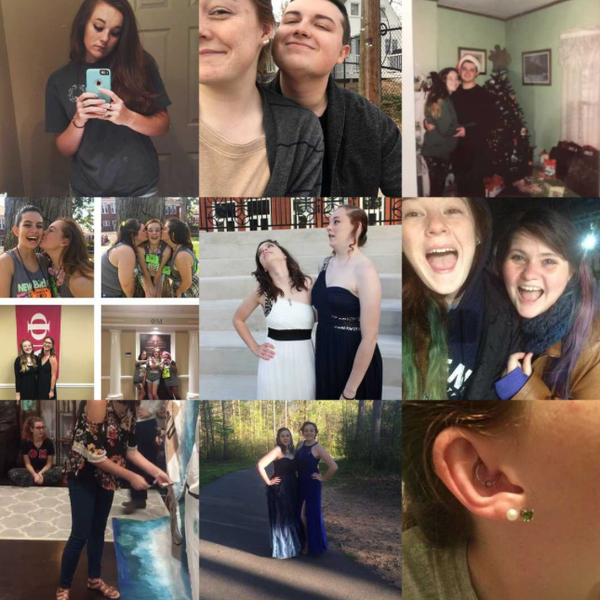The statistics are scary. Nearly one in five adults in the United States alone lives with a mental illness. Suicide rates in the U.S. have risen at least 25 percent since 1999. 40 million Americans age 12 and over meet the clinical criteria for addiction. An estimated additional 80 million people in the U.S. are "risky substance users," meaning that while not addicted, they "use tobacco, alcohol and other drugs in ways that threaten public health and safety."
That's nearly 37 percent of the United States' population.
Despite these numbers, we still continue to overlook mental health concerns as a country and seem to be actively keeping the stigma alive. We have a tendency to only care about people struggling with mental health issues once it reaches a crisis point. This has unfortunately been demonstrated multiple times in the past few months, from the deaths of Kate Spade and Anthony Bourdain to suicide to the recent overdose of Demi Lovato. Following all of these instances, we see an outpouring of support and love to the individuals and those close to them.
This is a good thing. It's a good thing to see such support, especially in contrast to the negative backlash by the public that accompanies something like this happening and the stigma surrounding mental illness. Support and love are good things. But why do they only appear following a crisis? Why aren't we showing this same amount of love when these individuals need it the most—before a crisis?
As awful as these moments are, as awful as it clearly is when these illnesses reach a breaking point, sometimes it feels harder to keep going when these big dramatic events aren't happening. Sometimes its the lulls in recovery that leave survivors feeling the most unsupported and hopeless. And we have a funny tendency as human beings to never really learn from our mistakes when it comes to this stuff.
Countless celebrities have died by suicide and countless more have come out about their struggles with depression and mental illness. We hear the news of a death by suicide, we send love, and we move on. We don't talk about it again until we lose someone else. Countless celebrities have overdosed and countless more have come out about their struggles with substance abuse and addiction. But we don't reach out with love and support to those celebrities until they enter rehab, overdose, or die. We're all about afterthought.
Demi Lovato has been dealing with substance abuse and addiction for at least six years. But the general public didn't start talking about it until she nearly died.
What if every person who sent out love and prayers following Spade and Bourdain's death donated to causes that work to end suicide? Or reached out to their friends and family and asked if they ever thought about hurting themselves? What if every person who sent out love and prayers following Demi's overdose donated to causes that work to support addicts? Or reached out to their friends and family and checked in on their substance use?
What if we cared before another tragedy happens?
These illnesses thrive in silence. The more we talk about this stuff, the less scary it is, and the easier it becomes for people to reach out for help and heal. We have got to start talking. Before we lose someone else.



















